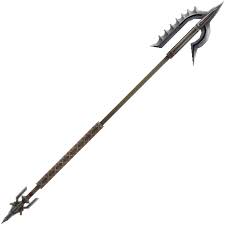lance
英 [lɑːns]
美 [læns]
- n. 长矛;执矛战士;柳叶刀
- vt. 以长矛攻击;用柳叶刀割开;冲进
- vi. 急速前进
- n. (Lance)人名;(英)兰斯;(法)朗斯
使用频率:

记忆方法
1. freelancer => lance.
中文词源
lance 长矛
来自拉丁语lancea,长矛,词源同freelancer.
英语词源
- lance
-
lance: [13] Lance is now a fairly widespread word throughout the European languages: German has lanze, for instance, Swedish lans, Italian lancia, and Spanish lanza. English acquired the word from Old French lance, which in turn came from Latin lancea, but its ultimate origin may have been Celtic. Derived words in English include élan and launch. Lance corporals [18] were not named because they carried lances. The term was based on the now obsolete lancepesade ‘officer of lowest rank’, which came via Old French from Old Italian lancia spezzata, literally ‘broken lance’, hence ‘old soldier’.
=> élan, launch - lance (n.)
- late 13c. (late 12c. as a surname), from Old French lance (12c.), from Latin lancea "light spear, Spanish lance" (Italian lancia, Spanish lanza), possibly of Celt-Iberian origin. The French word spread into Germanic (German Lanze, Middle Dutch lanse, Dutch lans, Danish landse). Lance corporal (1786) is from obsolete lancepesade "officer of lowest rank" (1570s), from Old Italian lancia spezzata "old soldier," literally "broken lance."
- lance (v.)
- "to pierce with a lance," c. 1300, from Old French lancier, from Late Latin lanceare "wield a lance; pierce with a lance," from lancea (see lance (n.)). The surgical sense (properly with reference to a lancet) is from late 15c. Related: Lanced; lancing.
权威例句
- 1. Lance Corporal Williams officiously ordered them out.
- 一等兵威廉斯越俎代庖地命令他们出去。
- 2. to lance an abscess
- 切开脓肿
- 3. Lance Corporal Alan Smith
- 一等兵艾伦∙史密斯
- 4. I hurled a lance at him.
- 我把长矛朝他掷去.
- 5. Crusader : Lance - Damage over time effect will now stack with other allies.
- Crusader:Lance,持续性伤害的效果将会与队友相加.
